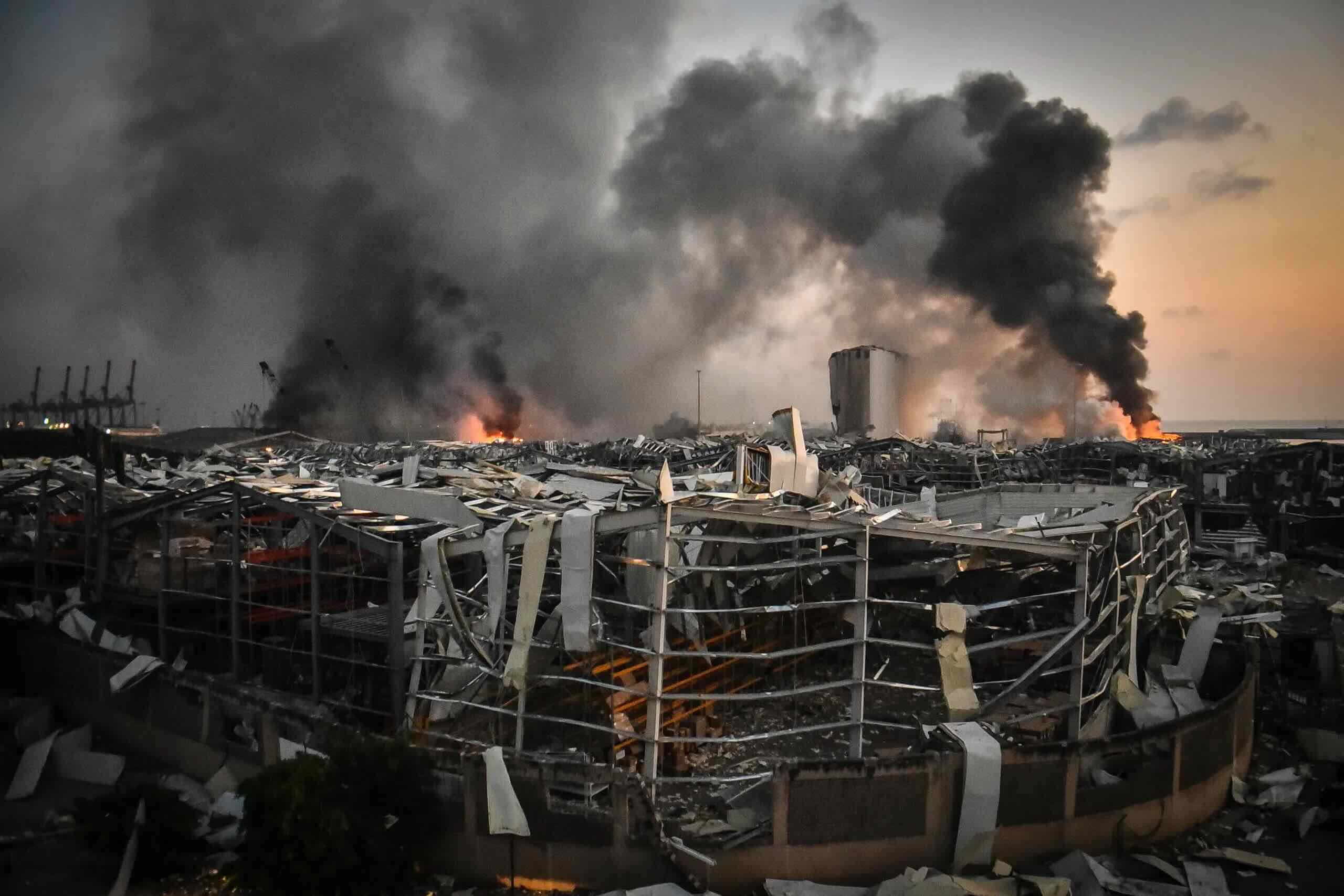
What caused the Beirut explosion? On August 4, 2020, Beirut experienced a catastrophic explosion that shook the entire city. The cause? A massive stockpile of ammonium nitrate stored unsafely in a warehouse at the port. This chemical, used in fertilizers and explosives, had been sitting there for years, neglected and forgotten. When a fire broke out nearby, it ignited the ammonium nitrate, leading to a blast that was felt miles away. The explosion resulted in over 200 deaths, thousands of injuries, and widespread destruction. This tragic event highlighted severe negligence and corruption within Lebanon's government and port authorities.
The Beirut Explosion: A Day That Shook the World
On August 4, 2020, Beirut, the capital of Lebanon, experienced one of the most devastating explosions in recent history. This tragic event left a lasting impact on the city and its residents. Here are some crucial facts about the Beirut explosion that highlight its magnitude and aftermath.
The Explosion's Immediate Impact
The explosion was so powerful that it was felt miles away. Let's delve into the immediate effects of this catastrophic event.
- The explosion occurred at the Port of Beirut, where a large amount of ammonium nitrate was stored.
- Approximately 2,750 tons of ammonium nitrate, a highly explosive chemical, detonated.
- The blast resulted in a massive mushroom cloud, reminiscent of a nuclear explosion.
- Shockwaves from the explosion were felt as far away as Cyprus, over 150 miles from Beirut.
- The explosion registered as a 3.3 magnitude earthquake on the Richter scale.
Human Toll and Casualties
The human cost of the Beirut explosion was immense, affecting thousands of lives in an instant.
- Over 200 people lost their lives due to the explosion.
- More than 6,000 individuals sustained injuries, ranging from minor cuts to severe trauma.
- Around 300,000 people were left homeless as their homes were destroyed or severely damaged.
- Hospitals in Beirut were overwhelmed with the influx of injured patients, many of whom required urgent medical attention.
- The explosion caused significant psychological trauma, with many residents experiencing symptoms of post-traumatic stress disorder (PTSD).
Economic and Infrastructural Damage
The explosion not only caused human suffering but also inflicted severe economic and infrastructural damage on Beirut.
- The estimated cost of the damage ranged between $10 billion and $15 billion.
- The Port of Beirut, a crucial hub for Lebanon's economy, was almost entirely destroyed.
- Numerous businesses, including shops, restaurants, and offices, were damaged or completely obliterated.
- The explosion exacerbated Lebanon's already struggling economy, which was facing a severe financial crisis.
- Many historical buildings and cultural landmarks in Beirut were damaged, erasing parts of the city's rich heritage.
Causes and Accountability
Understanding the causes behind the explosion and holding those responsible accountable has been a critical aspect of the aftermath.
- The ammonium nitrate had been stored at the port for six years without proper safety measures.
- Multiple warnings about the dangers of storing such a large quantity of ammonium nitrate were ignored by authorities.
- Investigations revealed widespread negligence and corruption among port officials and government authorities.
- Several high-ranking officials were arrested and charged with negligence and mismanagement.
- The Lebanese government faced widespread criticism and protests from citizens demanding justice and accountability.
International Response and Aid
The international community quickly responded to the disaster, offering aid and support to Lebanon.
- Numerous countries, including France, the United States, and the United Kingdom, sent medical supplies, food, and financial aid.
- International organizations like the United Nations and the Red Cross mobilized resources to assist in relief efforts.
- Many Lebanese expatriates and diaspora communities around the world organized fundraising campaigns to support the victims.
- The explosion prompted a global outpouring of solidarity, with people from different countries expressing their support for Beirut.
- Rebuilding efforts continue, with international and local organizations working together to restore the city's infrastructure and support its residents.
The Beirut explosion remains a stark reminder of the devastating impact of negligence and corruption. The resilience and solidarity shown by the people of Beirut and the international community offer hope for a brighter future.
Reflecting on Beirut's Tragedy
The Beirut explosion was a catastrophic event that left an indelible mark on the city and its people. On August 4, 2020, a massive blast caused by improperly stored ammonium nitrate devastated the port area, resulting in over 200 deaths, thousands of injuries, and widespread destruction. The explosion's impact was felt far beyond Beirut, drawing international attention and aid.
This tragedy highlighted the importance of proper safety measures and accountability. It also showcased the resilience and solidarity of Beirut's residents as they came together to rebuild their city. The explosion serves as a stark reminder of the potential consequences of negligence and the need for stringent regulations to prevent such disasters in the future.
Understanding the facts about the Beirut explosion helps us honor the victims and support ongoing recovery efforts. Let's continue to learn from this event and work towards a safer, more responsible world.
Was this page helpful?
Our commitment to delivering trustworthy and engaging content is at the heart of what we do. Each fact on our site is contributed by real users like you, bringing a wealth of diverse insights and information. To ensure the highest standards of accuracy and reliability, our dedicated editors meticulously review each submission. This process guarantees that the facts we share are not only fascinating but also credible. Trust in our commitment to quality and authenticity as you explore and learn with us.
